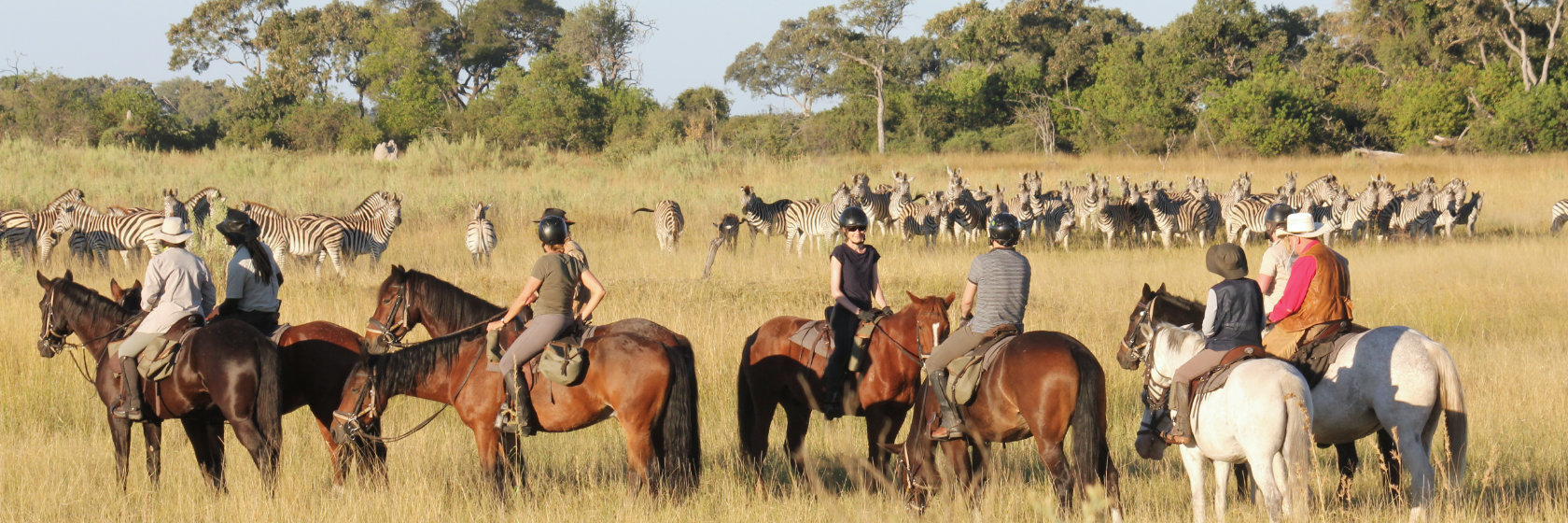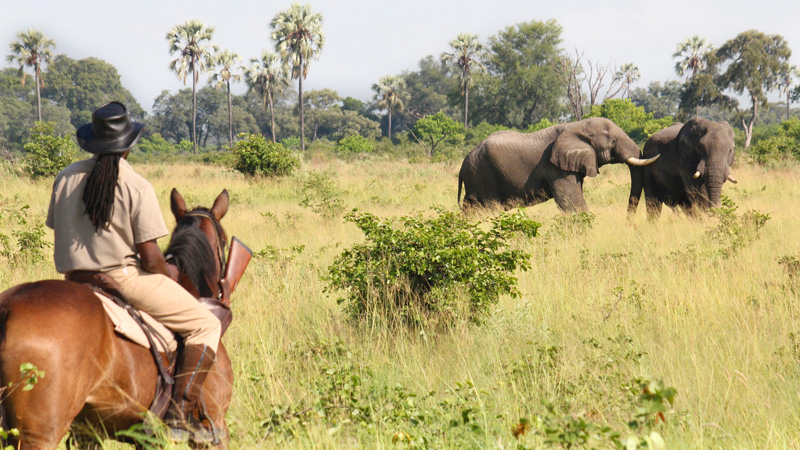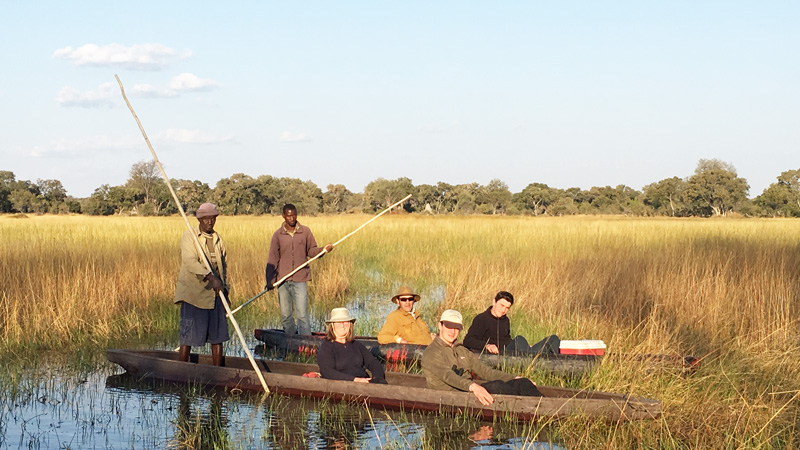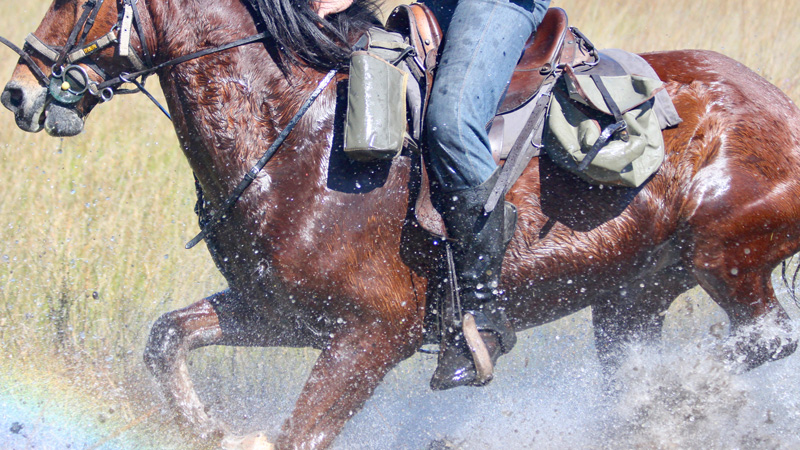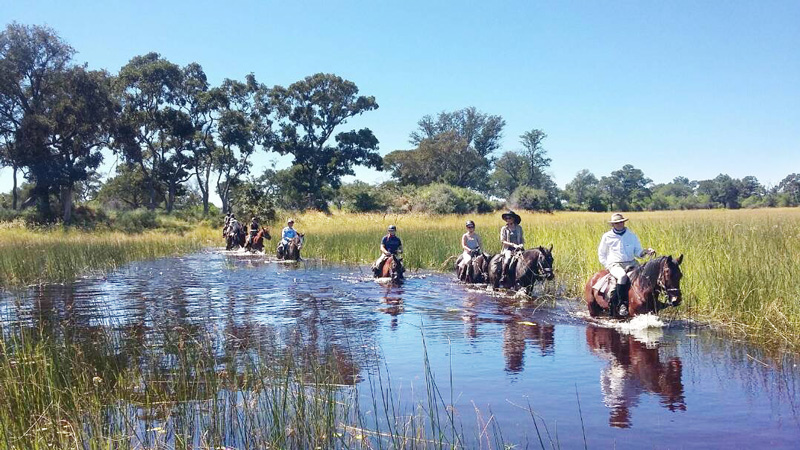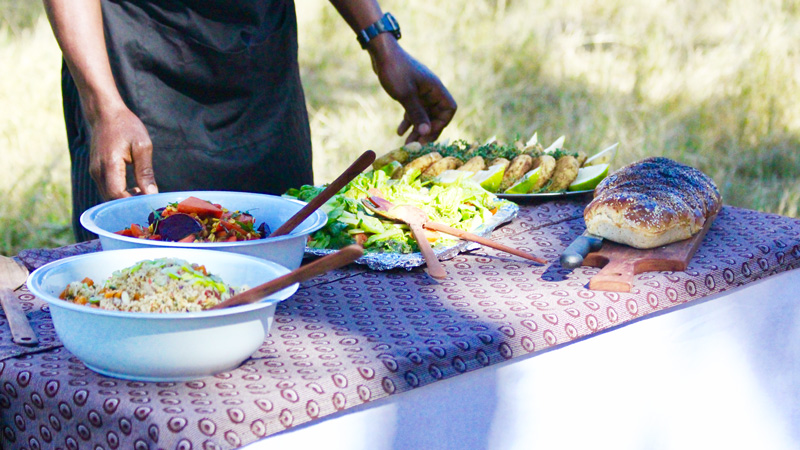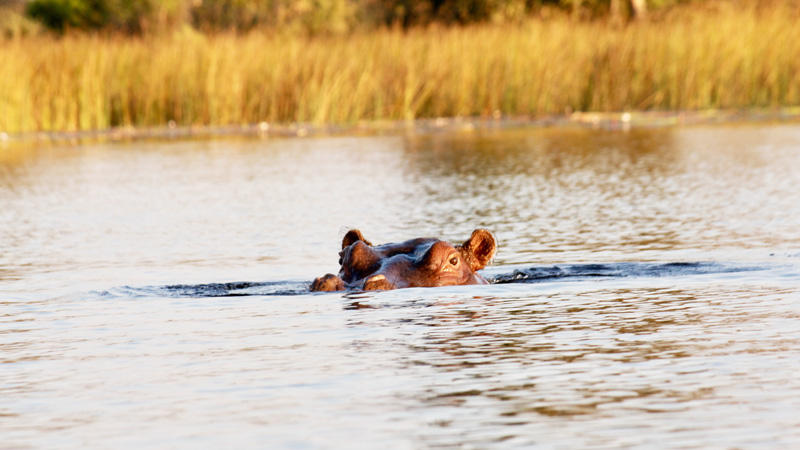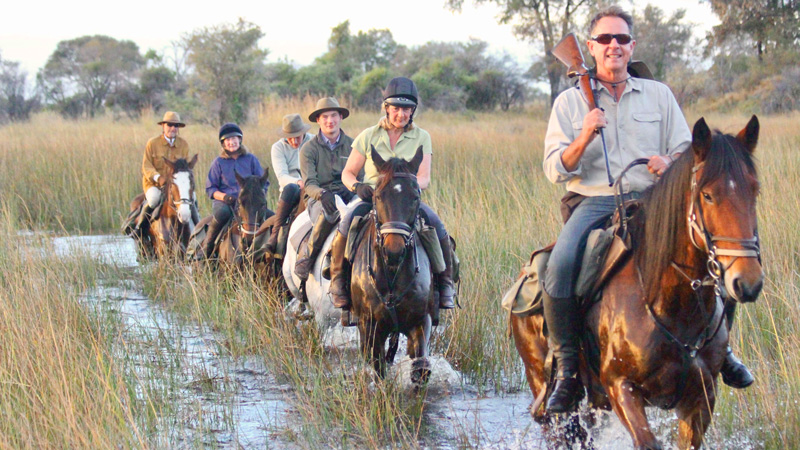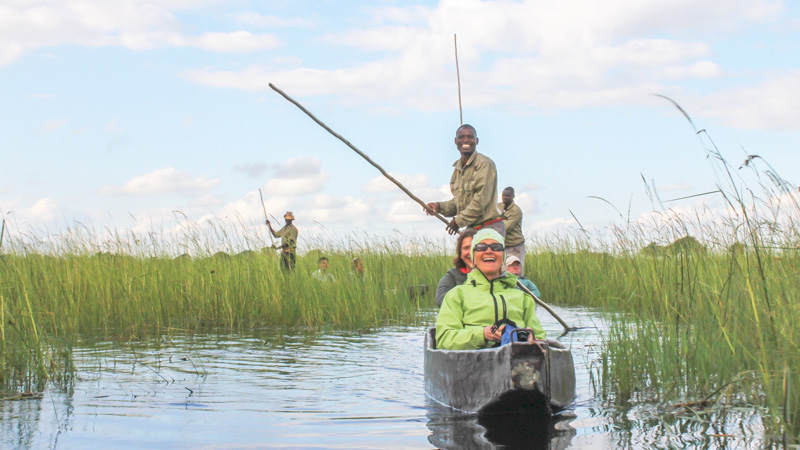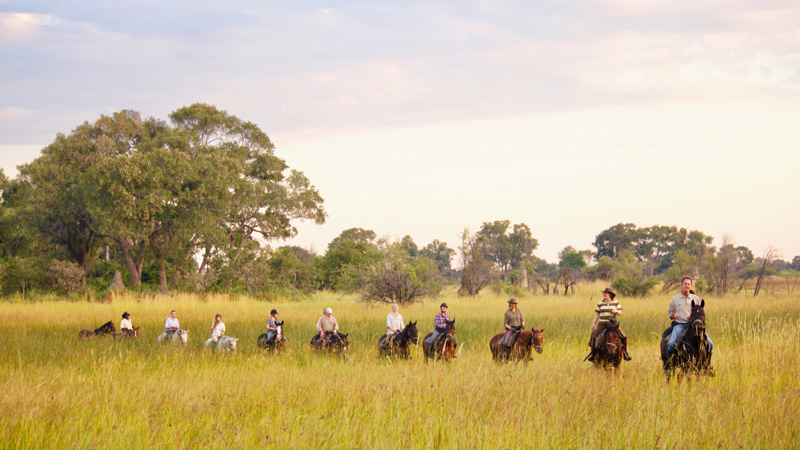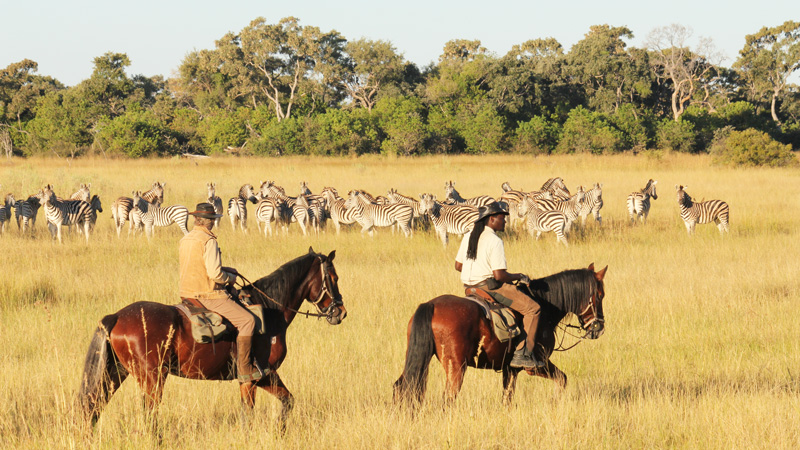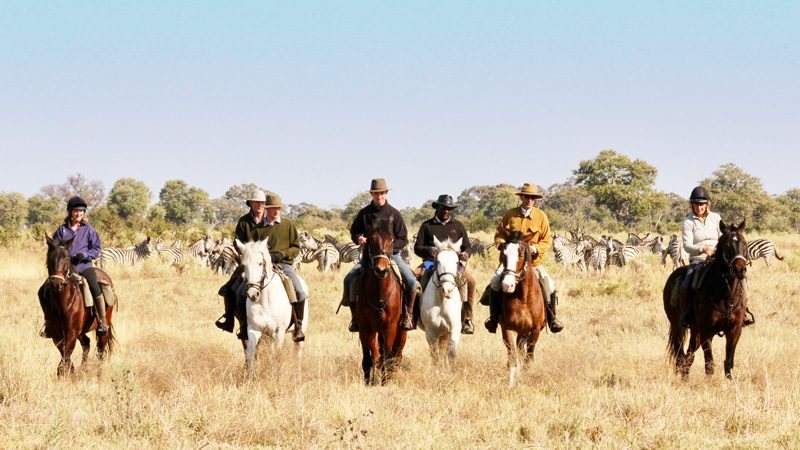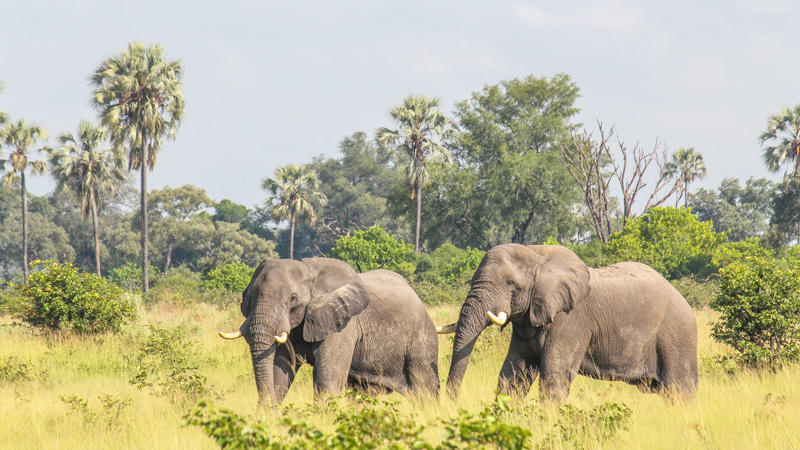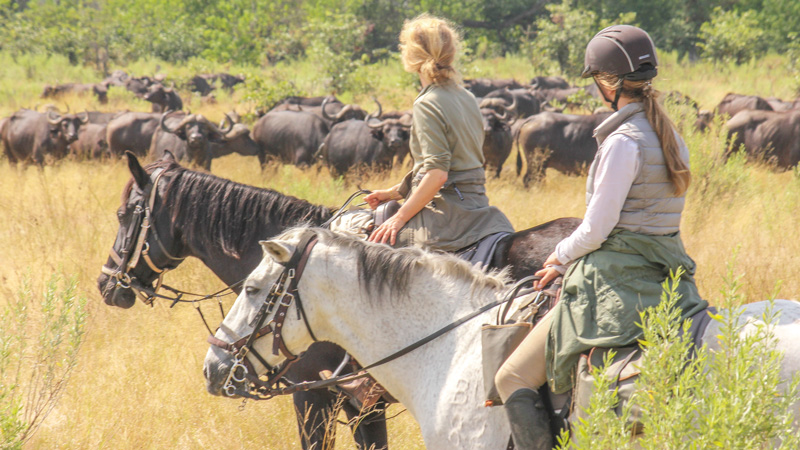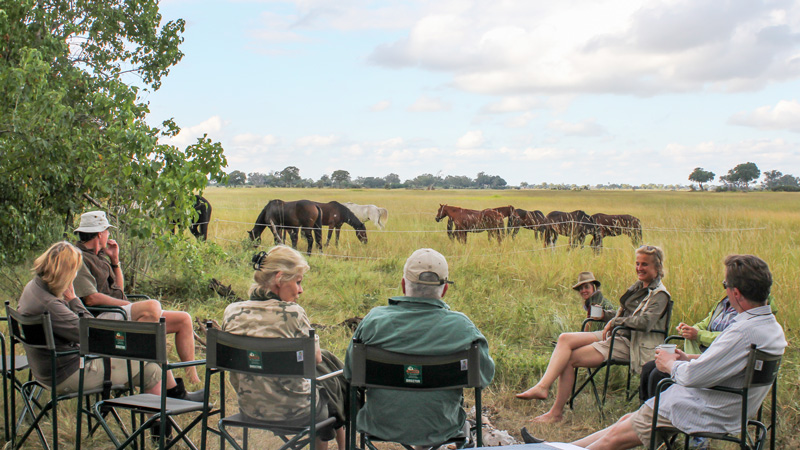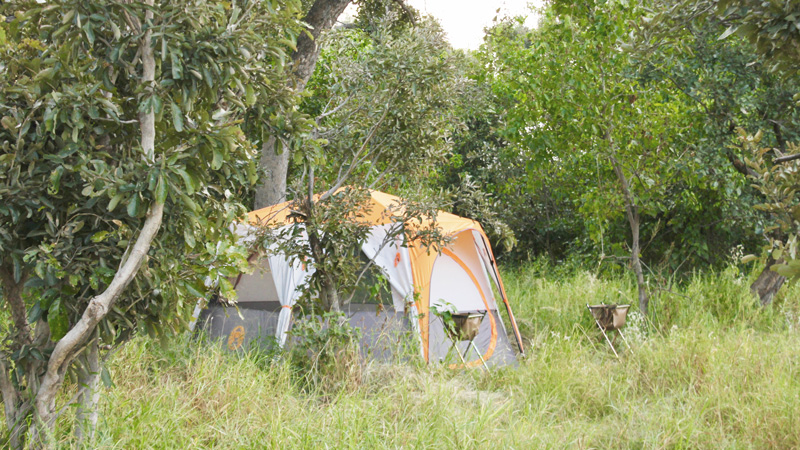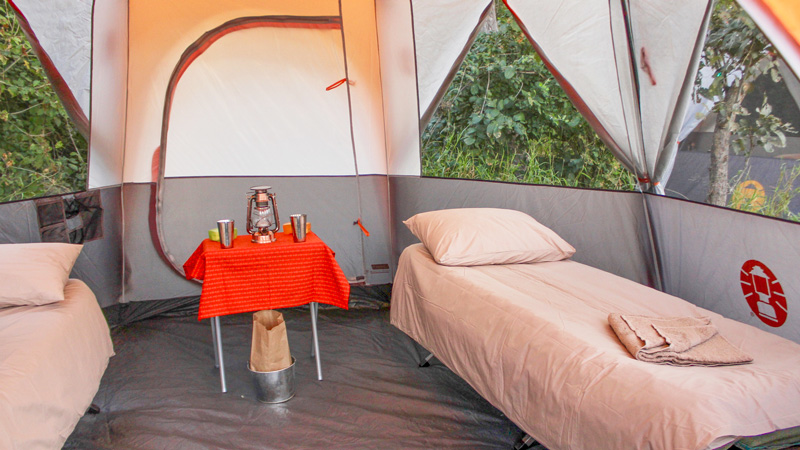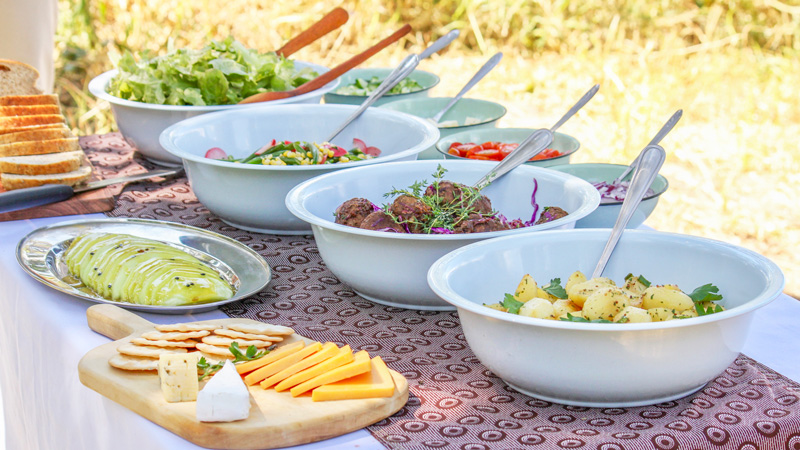The best time to come to Okawango – is when you can get away!
We are always being asked “When is the best time to come?” As this is such a complicated issue with many variables such as weather, water levels and game we have listed below some guidelines to help you decide what suits you best.
January / February
Weather: Warm / hot during the day with morning rides in a breeze – pleasantly warm at night. Small possibility of rain. Bush is green and lush – grass tall and green.
Temperature: Day: temps can reach 35°-45°C in the middle of the day Night: 10°-20°C
Water: Rain pools in the Mopane forests and on the open plains – but floodwater unlikely at this time.
Game: Cats around and plains game such as zebra, wildebeest, impala and kudu. Nomadic bull elephants and birds in breeding plumage.
Clothing: Lightweight riding gear, a raincoat and swimwear.
March / April
Weather: Warm / hot during the day – pleasantly warm at night. Small possibility of rain. Bush is green and lush – grass tall and green.
Temperature: Day: 25°-35°C Night: 10°-20°C
Water: Plenty of rain pools left over from the rainy season – but the floodwater is unlikely to be within riding distance of the camp.
Game: Because of the rain and waterholes, the game is dispersed all over the country – so not concentrated in herds yet. Possible still to see the plains game: zebra, wildebeest, impala etc as well as elephant, maybe buffalo and cats.
Clothing: Lightweight riding gear, a raincoat and swimwear.
May
Weather: Cooler at night, but still pleasantly warm during the day. Unlikely to rain. Bush still green but grass getting shorter.
Temperature: Day: 20°-30°C Night: 5°-10°C
Water: The Okavango annual floodwaters normally arrive in May or June – so are within riding distance for a couple of weeks before they actually reach camp. The floodwaters bring long shallow water canters on the floodplains and deeper channels to cross. As water levels rise, motorboat replaces vehicle game drives and mekoros are also in use into November.
Game: When the water arrives initially the birdlife is great as they feed off the shallow water areas. Game comes to drink from the water, with the buffalo and lechwe moving in as the water levels increase. However, there is a lot of water – so much of the game is still dispersed.
Clothing: A splash proof jacket, a fleece/sweater for evenings and swimwear.
June / July / August
Weather: This is our winter and can be chilly / cold in the early morning and evenings but warm in the middle of the day. Bush getting drier except around the edges of the islands where the green shoots start to come through.
Temperature: Day: 20°-25°C Night: 3°-5°C
Water: The water is at its highest levels, so plenty around to ride through and go boating on either in the motor boat or mokoro (canoe).
Game: Large herds of lechwe forming in the wetlands and perhaps hippo and crocodile in the area. Good potential for buffalo sightings with impala, tsessebe, kudu etc moving inland on islands.
Clothing: Splash proof jacket, a warm fleece/sweater for evenings.
September / October
Weather: Winter is over and it gets progressively hotter building up to the first rains, which clear the hazy days and the skies are big and beautiful. Trees come into flower and then leaves go green and fruits grow. Evenings are warm and the plunge pool gets a lot of use! Bush is dry and grass short.
Temperature: Day: 30-45°C Night: 15°-25°C
Water: The floodwater normally stays around the camp area until October – but this, of course, depends on how big the flood was to start with. As the floodplain water recedes, drinking pools of water remain – hopefully until the next rains come!
Game: The game now tends to concentrate as the water sources lessen – often big herds of buffalo, elephant and with shorter grass more plains game can be seen. More likely to see wild dog as well as the cats who favour dry savannah such as cheetah. Young giraffe and lechwe; hyenas more evident cooling off in the pools.
Clothing: Lightweight riding gear, a fleece/sweater and swimwear.
November / December
Weather: The rainy season is any time from November – but impossible to say exactly when and how much. Normally the rain comes for an hour or so every day and then often goes away for a week or more before it rains again. It is warm to sticky hot before the rain and cooler after each rain. Bush turns green with the rains and many of the trees and flowers come into bloom while the sunsets become increasingly dramatic.
Temperature: Day: 30°-40°C Night: 15°-20°C
Water: Depending on the flood level, there will be some water around with the rain topping up the pools.
Game: Very good until the first rain when it disperses again – the young antelope are born at this time and are very entertaining to watch.
Clothing: Lightweight riding gear, a raincoat and swimwear.

